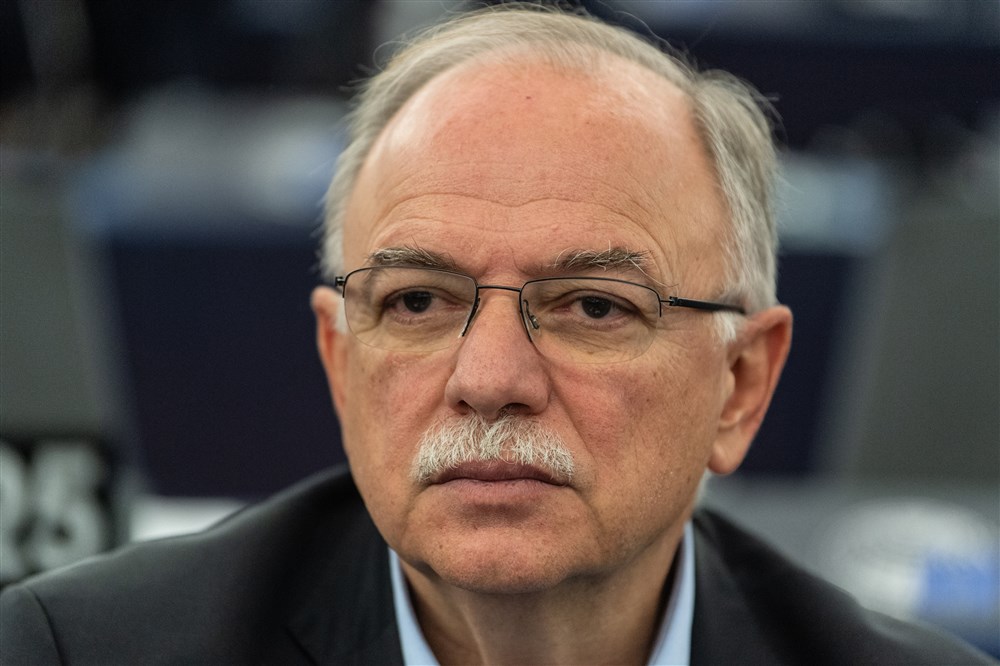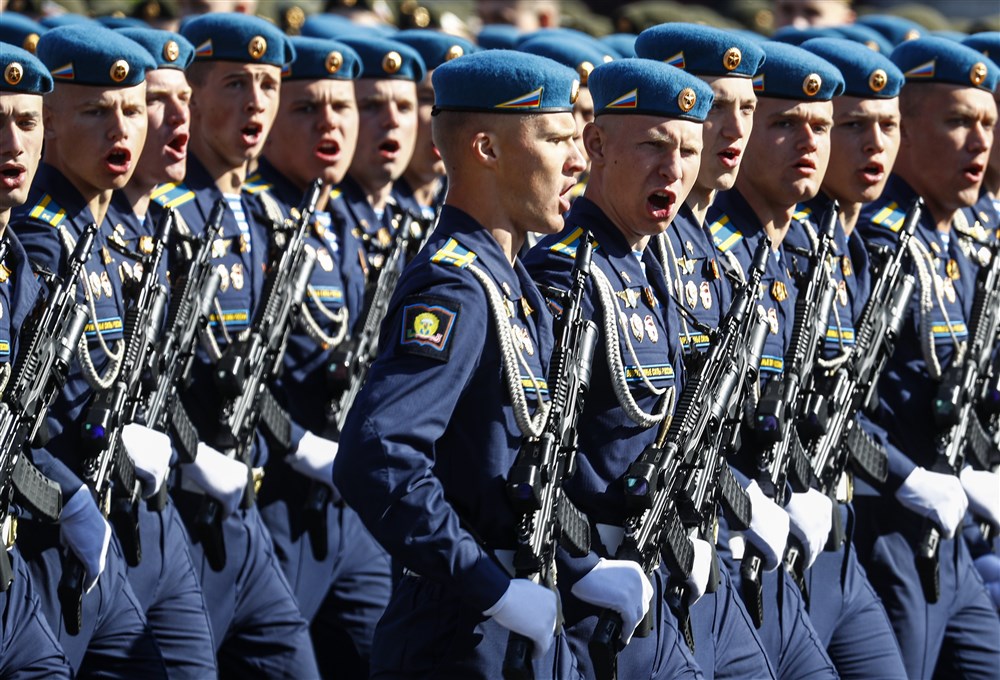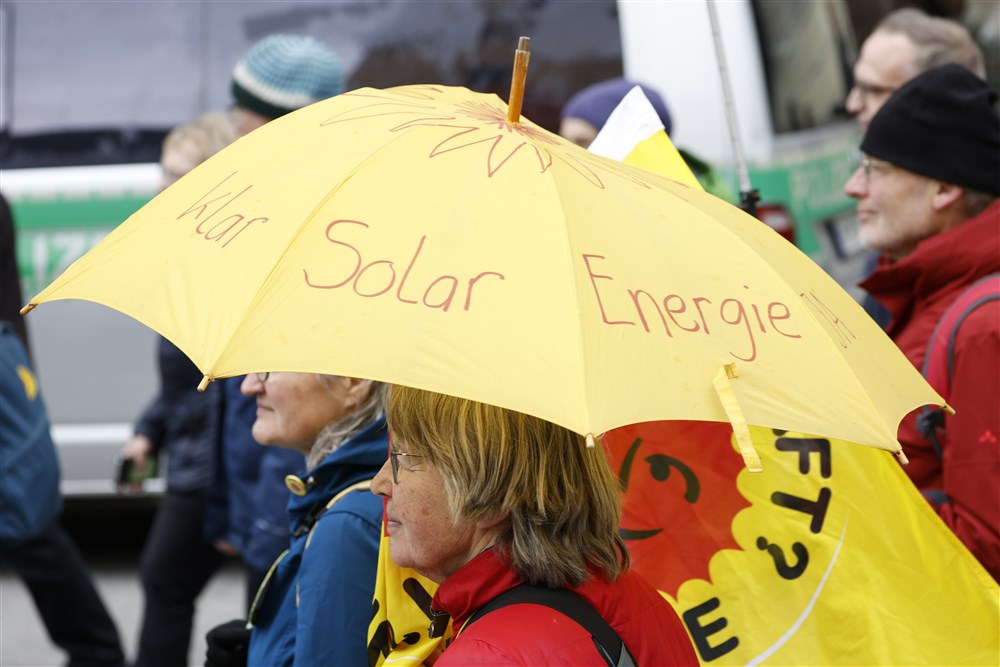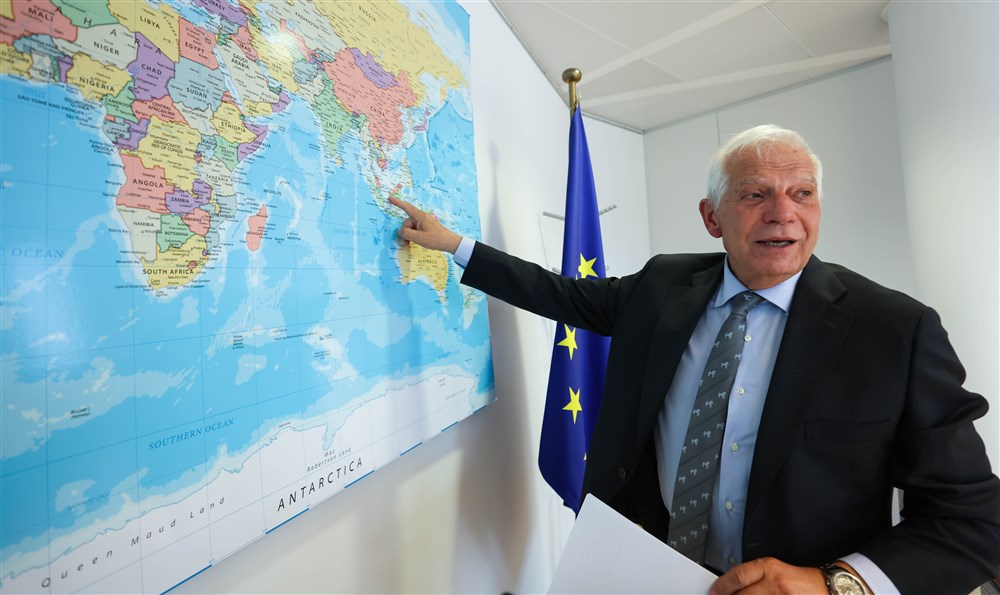Belgian police, accompanied by German police, “raided” the European People’s Party (EPP) headquarters in Brussels on April 4 though the party itself said agents came around on a “visit”.
Police wanted to see documents related to alleged corruption during the 2019 EU election campaign, according to Euractiv. “In the spotlight is Christian-Democrat (CDU) lawmaker Mario Voigt, the digital campaign manager for EPP leader Manfred Weber during the 2019 EU election campaign.” According to German media reports, the inquiries centre on awarding the contract for the digital campaign to a company in Thuringia, Germany.
European parties such as the EPP, and their European Parliament group of the same name, are almost unknown outside of the world of European politics, despite the EPP being the biggest such group and party in the EU.
They are artificial structures forced into existence by the EU as part of an attempt to forge a pan-European electorate. A Euro MP sitting outside one of these structure has less chance of seeing his or her amendments become law. Importantly, MEPs outside these groups have no access to parliamentary funds.
While the Parliament’s group voting system forces Euro MPs of different nationalities to cooperate, it is the money that keeps the pan-European political party bandwagon on the road.
Thanks to EU taxpayer funds (and a minimal amount of fund-raising) the EPP, when its party and group funds are put together, is estimated by one insider to control bank accounts that in a pre-election year such as 2023 could total around €35 million.
While there are in theory restrictions on how this money is spent, there are few in reality. Travel, events, suppliers, contractors: everyone will get paid if you’re a friend of the party. Those in the European Parliament charged with supervising funds are in many cases former party members too, which is handy if they used to work for your party (and not so handy if you are an opponent).
The pan-European EPP and its rivals from the Socialist and Liberals blocs are not supposed to support national campaigns: that would be cross-financing. To get around this, they can hold events in EU member states that are in effect rallies for their member, though without mentioning that party at all.
“The real issue here is the lack of oversight by the European Authority for Political Parties and Foundations [supposedly an independent oversight board] and the Parliament’s Directorate for Finance, which is heavily politicised,” said one source.
Rumours about the tip-off that led to the original German investigation abound. Could it have come from former EPP employees with a grudge?
“Weber will have a political cost because of this story”, one source told Euractiv, referring to EPP leader Manfred Weber.
The pan-European political movements, meanwhile, only really exists for Brussels insiders. Political groups have in the past allied in an attempt to force through their choice for European Commission President: the so-called ‘Spitzenkandidaten‘ process. Ask an actual voter in the EU elections what they think of this process, and you are sure to get a blank stare.





